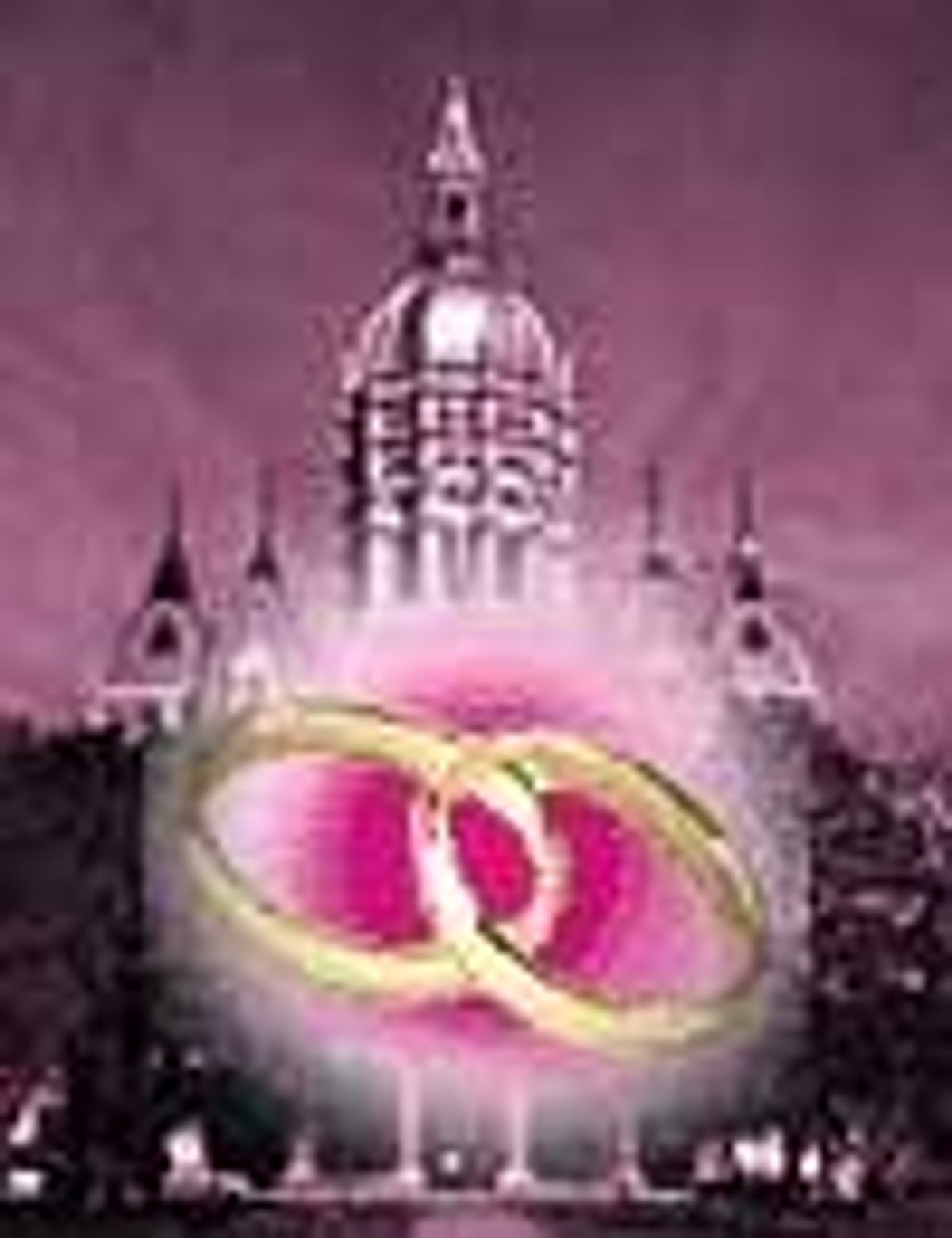Connecticut's
decision to legalize same-sex civil unions is the basis for
a lawsuit that seeks to force the state to allow full
marriage rights for gay couples. Lawmakers legalized
civil unions earlier this year, granting gay and
lesbian couples the same legal rights as married couples but
denying them the ability to wed.
Eight couples argue in a brief filed Thursday in
New Haven superior court that if the state is willing
to grant same-sex couples all the legal rights and
privileges of marriage, it has no reason to bar them from
actually marrying. "The civil union law undercuts any
rationale the state ever could have had for denying
marriage," said Ben Klein, a senior attorney with Gay
and Lesbian Advocates and Defenders. The group
successfully challenged marriage laws in Massachusetts,
which now allows same-sex couples to marry.
The eight couples sued the state Department of
Public Health and the town of Madison after they were
denied marriage licenses there last year. They claim
their rights to equality and liberty under the state
constitution have been violated because they can't
marry, and they say they will use the debate over
civil unions to bolster that claim. "The reality is
that civil unions are not equal," Klein said. "Marriage is a
unique legal and cultural institution. It has no substitute.
It has no equivalent."
State attorney general Richard Blumenthal, who
is defending the Department of Public Health in the
lawsuit, said in a statement that he will respond to
the couples' brief after his office has had a chance to
review it. "The civil union law will not assist the
challenge in the way the plaintiffs contend,"
Blumenthal said. "The state has the right and
authority to define marriage, as it has done, consistent
with state and federal constitutions, and the civil
union law does not undermine the state's ability to do so."
The law that created civil unions also defined
marriage as a union between one man and one woman.
Brian Brown, executive director of the Family
Institute of Connecticut, which opposes same-sex
marriage, said his group had predicted that proponents
would use civil unions as a springboard for a court push.
"Any legislator who voted for civil unions thinking it was
going to stop there was dead wrong," he said. "The
normal means of foisting same-sex marriage on the
public in America isn't through a vote, isn't through
the normal channels of democracy. It's through the court."
Connecticut was the first state to voluntarily
provide far-reaching legal benefits to same-sex
couples. Vermont has civil unions, and Massachusetts
allows same-sex marriage, but those rights were granted only
after court fights. Several of the couples involved in
the Connecticut lawsuit said Thursday that they do not
intend to enter into civil unions when they become
legal on October 1. "We really believe marriage best
reflects what we've had together. We have a deep love
and commitment, and civil unions don't reflect that,"
said Janet Peck of Colchester. She and her partner,
Carol Conklin, will celebrate their 30th anniversary later
this year. "Civil unions just kind of feel like you're not
good enough," Conklin added.
Other couples, such as Jeffrey Busch and Stephen
Davis of Wilton, will apply for a civil union,
albeit reluctantly. They feel they cannot pass up
the legal protections the arrangement will
provide--such as the right to sue for wrongful
death and the ability to file taxes jointly--but
they do not plan a celebration. "Civil unions are
humiliating. We're embarrassed by it," Busch said. "We
will in essence be agreeing to be officially
marginalized. I'm very hopeful that is a temporary step
on our way to being considered a full family deserving the
same respect as other families." (AP)



















































































Fans thirsting over Chris Colfer's sexy new muscles for Coachella